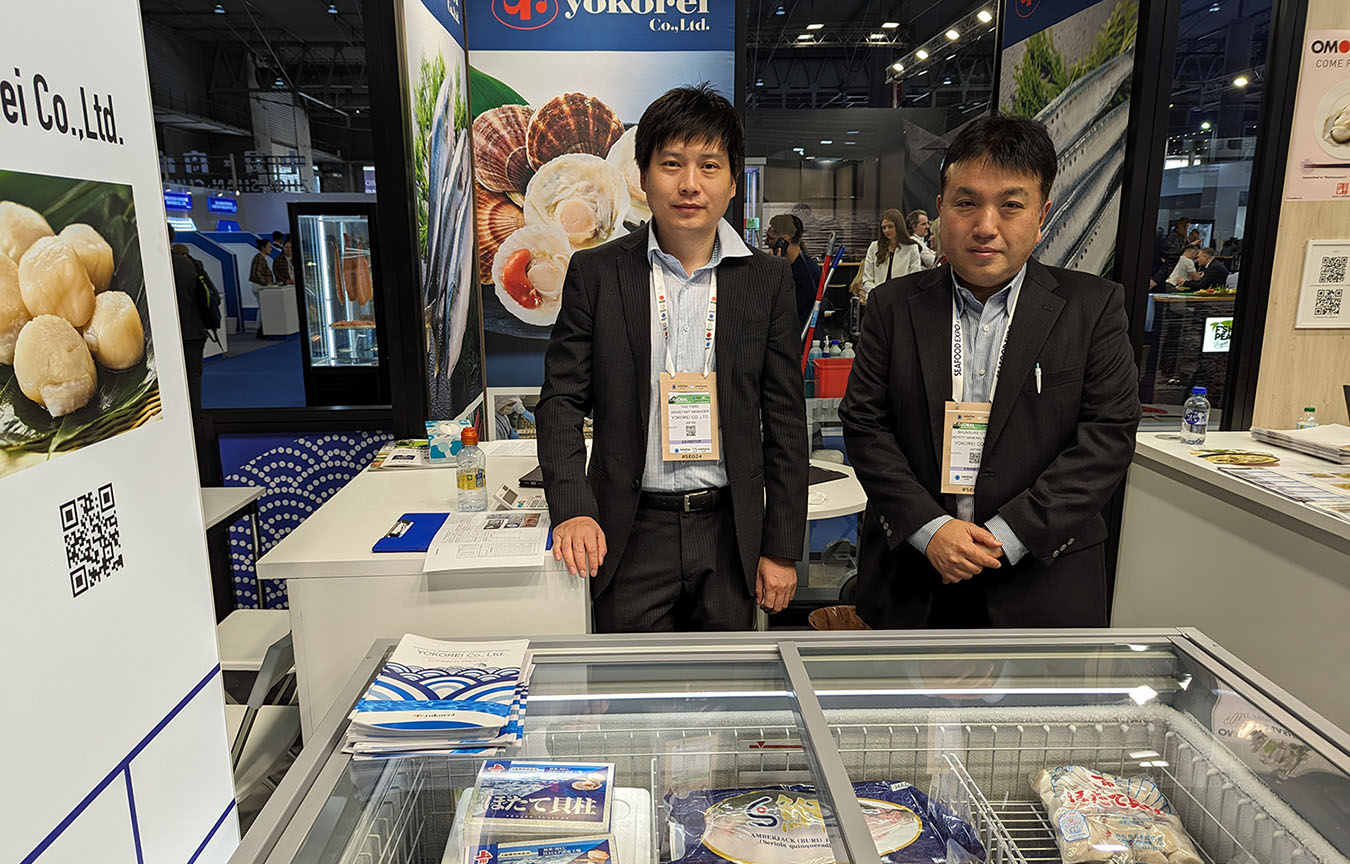Scallop exporters in Japan are continuing to grapple with China’s total ban on imports of Japanese seafood, with some pivoting to Southeast Asia as a new destination for raw products.
China’s complete ban on Japanese seafood went into effect in August 2023 and was made in response to the release of contaminated cooling water from the Fukushima Daiichi Nuclear Power Station by the plant’s operator: Tokyo Electric Power Company Holdings (TEPCO). That ban has had a heavy impact on a number of Japanese seafood exporters, with Hokkaido scallop producers in particular seeing customers pull back on orders.
At Seafood Expo Global – running from 23 to 25 April in Barcelona, Spain – Japanese scallop exporters told SeafoodSource that the ban is continuing to make life difficult.
Tsujino & Co. Manager Hiroki Komiyama said his company traditionally exported 90 percent of its frozen whole-shell scallops to China, mainly for the purpose of reprocessing for export to other markets. With the ban, that market has been shuttered, forcing his company to find new processors.
“The Japanese producers, especially in Hokkaido, they have already started to do reprocessing in Vietnam,” he said.
Komiyama added that his company doesn’t expect the ban to change any time soon, based on the historical behavior of China in regards to bans on products.
“We see that the issue is political,” he said. “Based on the past record of Australian beef, it took three years. We suppose [this] will [also] take at least three years.”
Yokorei Co. Deputy General Manager Shunsuke Otsuki told SeafoodSource his company expects much of the same and that China won’t be a viable market for years – with other potential conflicts on the brink of emerging in the near future. He said much of his company’s products – roughly 3,000 metric tons of whole-shell scallops – were exported to China before the ban, mainly for processing and export to the U.S. So, even if China lifts its ban, potential conflicts between the U.S. and China could cause further problems.
“Because of the conflict between China and the U.S. over the economy and if [Donald] Trump is the new president, then we are worried very much of the duty from China increasing,” Otsuki said.
Otsuki said that his company, though, has coped with the ban better than most, as it has found ...








